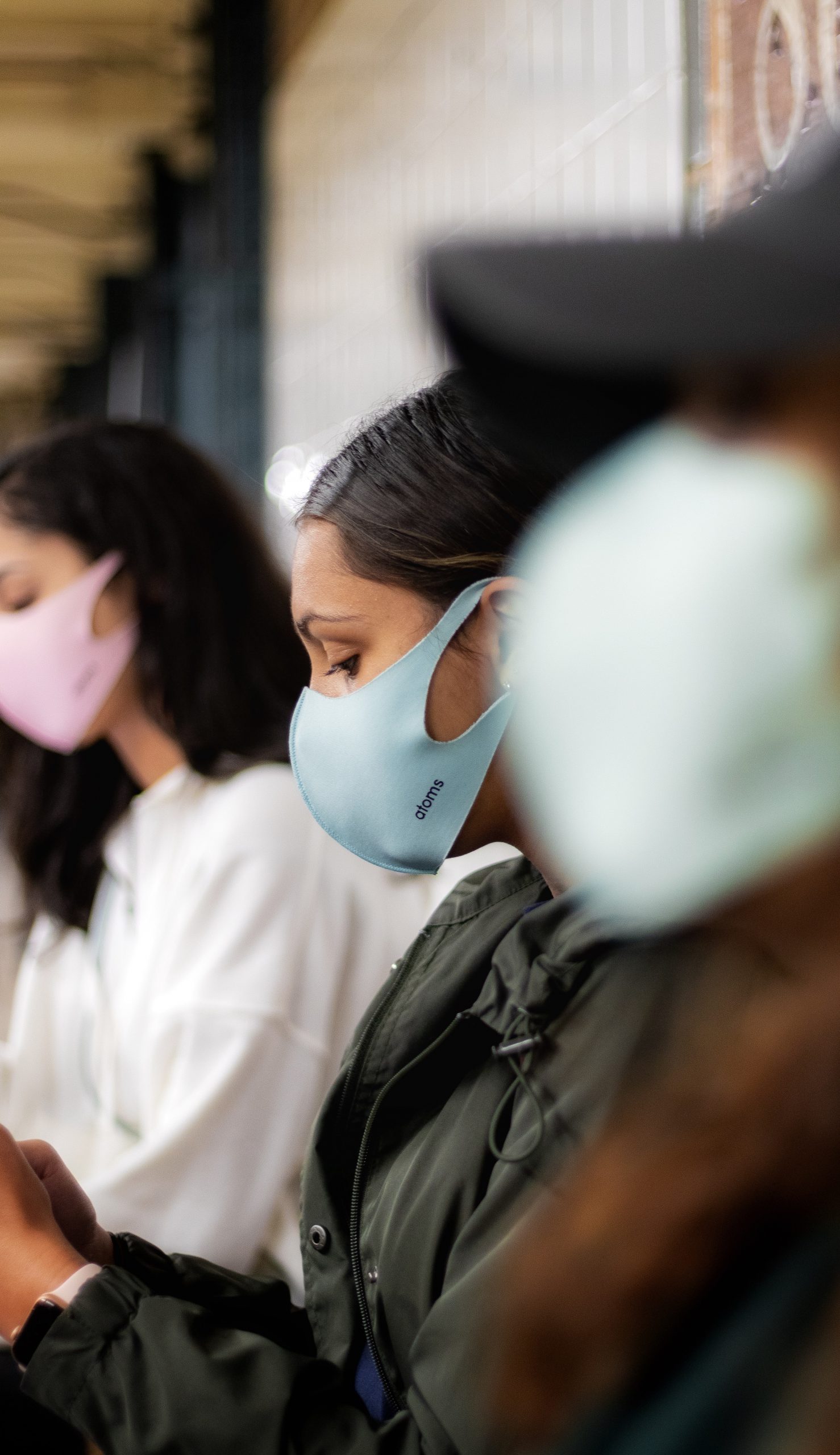
YEARS OF
RESPONSIBLE
INVESTMENT
LEADERSHIP
2020 marked SHARE’s twentieth anniversary.
This past year, we rose to the challenge, mobilizing our network of institutional investors in support of a just recovery, building resilience, advancing racial justice and reconciliation and continuing our efforts to build a sustainable, inclusive and productive economy.
The world was shaken by the events of 2020.
Amid the tumultuous storm of a global pandemic, long-standing injustices were laid bare in our workplaces, our communities, and our economies.
We were challenged to rethink some of our basic assumptions in rebuilding our economy.
Last year SHARE was honoured to celebrate 20 years of responsible investment leadership, together with our growing network of institutional investors and community partners. SHARE’s focus in 2020, however, was marked less by celebration and more by the urgent need to mobilize our network of investors to respond to the social inequities that were exposed by the coronavirus pandemic, including the importance of safe and equitable working conditions, the ongoing impact of racial inequality, and the need for a just and sustainable energy and economic transition.
These issues have always been at the core of our mission and practice – they are why SHARE exists as an organization – and yet the stakes have never been higher, nor the opportunity greater.
CONTINUE READING
Although well into 2021 the path to recovery is still uncertain, we have an opportunity and an obligation to remodel rather than replicate our pre-pandemic economy. We’ll do that by involving those affected by financial decisions in leading economic change, by challenging systems and not just symptoms, and by holding institutions accountable for the outcomes they affect – all core parts of the SHARE model. Those principles guided all of our work in 2020 and will continue to guide our work into the future.
In 2021, you’ll see that approach reflected in our Canadian Capital Stewardship Network (CCSN), where trustees and unions lead advocacy for decent working conditions across all sectors including long-term care, fast food, IT, property services, and within global supply chains. You’ll see it in our partnership with NATOA and other Indigenous organizations on the Reconciliation and Responsible Investment Initiative (RRII), which is bringing Indigenous voices to the fore in moving investors, corporations and markets to answer the Truth and Reconciliation Commission’s Calls to Action. You’ll see it in our new University Network for Investor Engagement (UNIE), which is helping university pension plans and endowments to throw their weight behind a climate transition. And you’ll see it in new initiatives on issues like affordable cities and racial justice all designed with the principle that inclusion is not just about being present, but having power.
Thank you to our staff, our board, our partners and allies for being with us through a challenging year, and supporting our continuing efforts to build an equitable and responsible recovery.
Together we have purpose, we are motivated, and we have the power to help build an economy that ensures a better future for all.
Sincerely,
Kevin Thomas, CEO

Kevin Thomas, CEO
OUR ROOTS
20 years of environmental, social & governance action
For two decades, SHARE has been helping institutional investors better understand responsible investment approaches and steward their assets in ways that contribute to positive social and environmental outcomes.
SHARE was founded in 2000, and officially launched at the BC Federation of Labour annual convention. SHARE was a first for Canada: a unionized, not-for-profit organization dedicated to promoting the responsible investment of workers’ capital.
SHARE quickly built its reputation as a leading voice driven by our cutting-edge research, credible analysis, and constructive approach to shareholder engagement and policy advocacy.
We also positioned ourselves steadfastly at the forefront of emerging environmental, social and corporate governance issues including Indigenous rights, say on pay, corporate lobbying, climate change and decent work.
From these strong roots, SHARE has grown in new directions as more than 120 investors such as foundations, asset managers, Indigenous trusts, universities, and religious investors sought to use their assets to contribute to our common mission of building a sustainable and inclusive economy.
A Team Built for Success
SHARE has been building a team that combines issue expertise, innovative and strategic thinking, and strong organizing and advocacy experience to deliver on the promise of change. In 2020, we welcomed four new team members to our SHARE staff and four new directors to the SHARE board. While we were forced to work at home for much of the year, our staff, board, partners and clients all went the extra mile to demonstrate the kind of caring, commitment and solidarity with each other and our networks that exemplifies the SHARE model.
ADVOCATING FOR RESILIENCE
Protecting workers
during the pandemic
Our communities, societies and economies are only as resilient as the people who work, live and play in those places, including, and especially, the most vulnerable.
In 2020, we witnessed the uneven impacts of the pandemic with higher infection rates among lower-wage workers in essential jobs, particularly racialized workers and newer immigrants. SHARE’s efforts to promote decent work focused on raising the standards and protections for vulnerable workers, particularly in the grocery, restaurant and long-term care sectors.
We set out to establish accountability for decent work at the highest levels, refashioning board committee charters at companies like McDonald’s, Dollarama, and Thomson Reuters to assign board-level responsibility for their more than two million workers. Our proposal seeking to elevate responsibility for decent work issues to the board level at Restaurant Brands International received overwhelming support from approximately 83 per cent of independent shareholders.
In the Spring of 2020, the Canadian Capital Stewardship Network (CCSN) published critical research shedding light on the gaps in effective due diligence of COVID-19 mitigation measures and workforce practices by real estate owners and their property managers.
2020 brought new challenges and opportunities for SHARE’s Modern Slavery Initiative, designed to establish supply chain due diligence and transparency legislation in Canada. Working with Canadian companies, politicians, government officials, and other stakeholders, we advocated for strengthening and broadening the provisions in a new Senate bill on “modern slavery,” introduced by Senator Julie Miville-Dechêne. In late 2020, we convened companies to advocate for protections for workers when the pandemic created a downturn in demand for global trade.
These efforts were recognized by the Responsible Investment Association with a Leadership Award for Advocacy, further raising awareness of this crucial human rights issue.
WATCH: Responsible Real Estate Management in the context of COVID-19

ADVANCING RACIAL JUSTICE & RECONCILIATION
2020 took a necessary and long overdue look at representation of Black, Indigenous and people of colour among both companies and investors.
In 2020, SHARE advanced racial justice and reconciliation in our leadership, research, advocacy and engagement programs.
For example, the award-winning Reconciliation and Responsible Investment Initiative (RRII) added new Indigenous Trust participants to its Values in Action engagement program, giving these trusts the opportunity to participate in engagements with portfolio companies on issues of concern to their trusts and the broader community.
Engagements with companies on Indigenous rights and commitments resulted in 15 companies establishing policies, cultural competency training, and targets for Indigenous employment and procurement. We used those experiences to advocate, together with Indigenous partners, to embed Indigenous inclusion in regulatory requirements for Canadian companies, and to launch a wave of shareholder proposals for action within Canada’s financial sector. After consulting with Inuit leadership, we also worked with corporate sponsors to successfully change the name of the Edmonton football team after many years of inaction.
WATCH: Conversations on Economic Reconciliation
RECOVERY
Promoting a Just Recovery
There is no doubt that the global pandemic has had devastating social and economic impacts in Canada and around the world. However, as vaccination efforts gain momentum, we can start to look at how we rebuild our communities, our companies, and our economies, particularly in light of the climate crisis and the urgent need for bold climate action.
In 2020, SHARE continued to advocate for a just transition to a low-carbon economy. In February 2020, SHARE published a new report that raises questions about liabilities associated with management of tailings ponds and is collaborating on a new global standard for safety as well as a global database of mine tailings ponds which will help to assess and mitigate these risks.
At the same time, our engagements with companies on greenhouse gas reduction targets, climate-related lobbying and fossil fuel financing brought about some important results. For example, we achieved a landmark vote at Ovintiv where 56% of investors supported our proposal seeking specific climate-related targets aligned with the Paris Agreement.
In June 2020, SHARE brought forward a proposal on climate-related lobbying to the AGM of Caterpillar Inc. and received 33.5% support from shareholders, more than doubling the vote from the last time this proposal was filed in 2017.
SHARE continued its engagement efforts in 2020 with Canadian banks on our sustainable finance objectives. TD Bank made a significant positive step in early November, when it released its climate plan which commits to measuring “financed emissions” and disclosure using the “Principles for Carbon-Aligned Accounting Financials” (PCAF) framework. SHARE has subsequently continued discussion with other banks, encouraging them to match or exceed TD’s commitment.
WATCH: Mobilizing investors for a green recovery

RISING TO THE CHALLENGE
SHARE is expanding its influence by fostering new partnerships and developing new responsible investment tools.
In 2020, assets mobilized by SHARE’s network of foundations, trade unions, pension funds, universities, asset managers, religious investors and Indigenous trusts more than doubled in size and continues to grow.
In February 2020, SHARE participated in the launch of the Canadian Capital Stewardship Network (CCSN), a network of labour-nominated pension trustees and trade union representatives from across Canada who are committed to making meaningful changes in capital markets through the effective stewardship of workers’ capital.
In September 2020, SHARE announced a new partnership with Groupe Investissement Responsible (GIR) to offer a new jointly-owned proxy voting and advisory service for institutional investors coast-to-coast.
We also brought together university endowments and pension plans from across Canada to form the University Network for Investor Engagement (UNIE). This effective and persistent corporate engagement program leverages the power of universities as institutional investors to meaningfully address climate change-related risks.
And finally, SHARE launched a new tool to help asset owners monitor and evaluate how their proxy voting rights are being used. With thousands of votes being cast in public equity portfolios every year, it is difficult for asset owners to evaluate their voting record to ensure their votes are cast consistently and responsibly. SHARE’s Proxy Audit Tool changes that by providing boards and investment committees with the data they need to see the big picture.
Leading Responsible Investing Research
SHARE regularly publishes research including investor briefs on emerging environmental, social and corporate governance issues as well as guides and resources to help asset owners implement responsible investment practices.
Read our latest publications